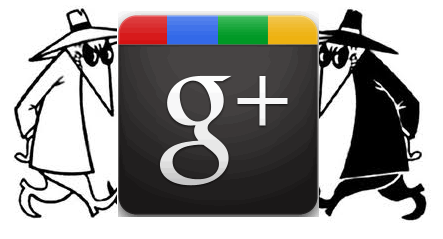The KGB, Mukhabarat And 2 Others Like This

NDI is embracing Google Plus internally as part of our migration to the 'plex's set of tools. However, for those of us in the democracy support world social media presents risks to others beyond the standard fear of drunken holiday party pics. This post shares some of the dangers we need to bear in mind.
"Man is by nature a social animal," as some dude observerved about 2300 years ago. Given our nature, it's not surprising that social media platforms such as Facebook and now Google Plus act like crack for our psyche. On these pages we tend to focus on activists fighting against authoritarian regimes, but it works for them precisely because it works for my aunt. Facebook as a purely revolutionary platform would not only have been unprofitable (I doubt the RiseUp collective is mulling an IPO at $100 billion) but it would also have been ineffective, as activating and informing average joes is where the real power lies.
All that hagiography is old hat, so today I'm going to focus on another aspect that needs to be in our minds alongside the astonishing statistics and inspirational stories: the dark side of social media.
For an authoritarian government, social media is a gold mine. I'd wager this is one reason these platforms are not blocked more often; Facebook must be one of the best sources of intel around. Brutal states have savvy security apparatuses, and goups such as the KGB in Belarus* and the Mukhabarat in Syria are avid readers of social media, as were their late, unlamented predecessors in Egypt and Tunisia.
Back in the bad old days the secret police would have to kidnap you and beat you with a hose until you gave them the list of your closest friends and confidants as well as a history of their recent movements. As with many things this task is far more convenient these days; they just need to grab your Facebook password.
Who you know tells those who care a tremendous amount about you, particularly in the Brave New World of sophisticated data mining, That's one reason I refuse friend requests from folks living under troubling governments: having a guy from the other side of the globe pop up as a buddy who works at the National Democratic Institute for International Affairs to boot may not do them any favors.
But wait, there's more! When you friend someone, you're trusting them with a view into your life. That's the whole point, of course, but who is that someone? In fact you're not only trusting them; you're trusting their computer security too to make sure your information isn't leaking out to a third party. Do they have a good password? Did they pick up nasty viruses or key loggers on their computer? (I assume, dear readers, that you are on top of all those computer hygene issues yourself.) In a worst-case scenario, what happens when some thug puts the squeeze on them to share their login?
Are these friends actually your freinds, anyway? Studies suggest 20% percent of people accept friend requests from strangers; over half do so if they have any mutual friends in common. (I look forward to annual celebrations of National Unfriend Day.) Then there's all those "Which Brady Bunch Kid Are You" quizzes that asked for all of your info- you can trust them, right?
The problem is natural. Facebook feels private, which is why we're willing to share. Regrettably, a lot of it may not as private as we'd like. So bear in mind that it might be Big Brother, not your big brother, who is following your moves with the greatest interest. We who work with activists have the duty to be doubly paranoid.
If you want a really creepy but thought-provoking reminder of just how much "they" can learn about us, check out Take This Lollipop, one of the fastest-growing apps on FB.
*The Belarusians never changed the name of their secret police. They know brand value when they see it. We were flattered when @KGB_Minsk started following @NDItech on Twitter. It's probably a joke account. Probably.
